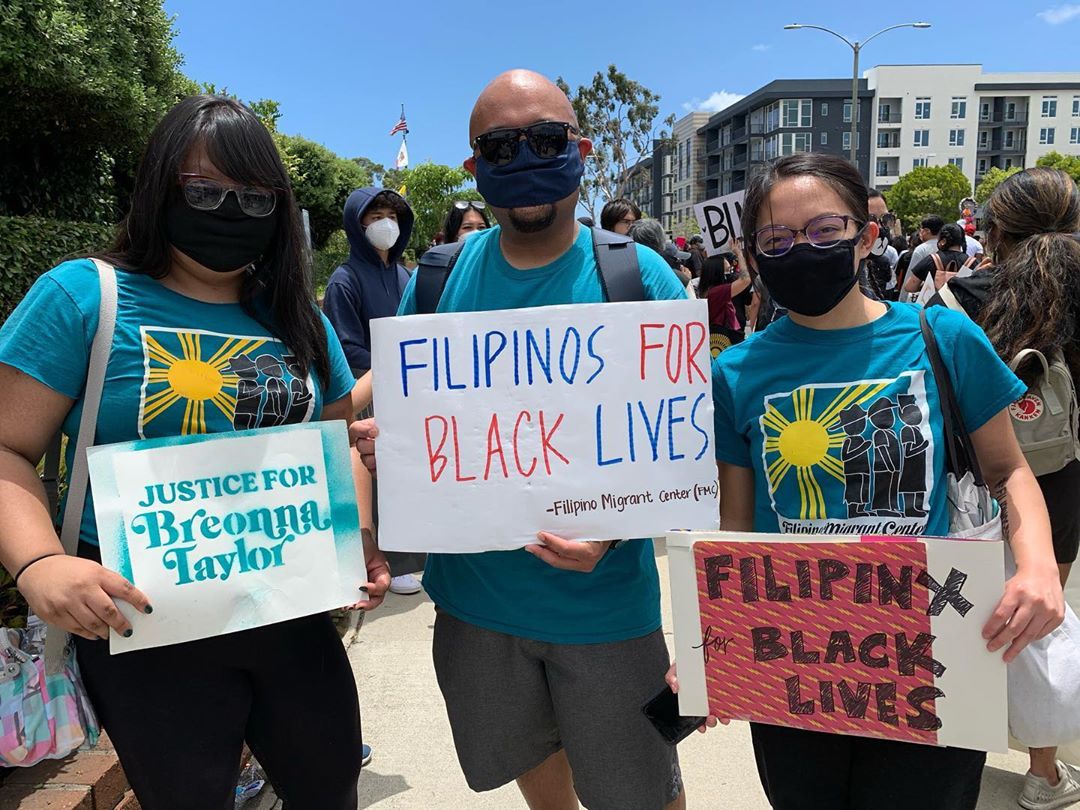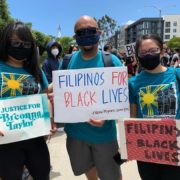
ON Tuesday, April 20, when the guilty verdict was called in the case of George Floyd’s murder by former Minneapolis cop Derek Chauvin, millions of Americans cheered for what many believed was a long-awaited serving of justice in cases involving police brutality against unarmed individuals.
The jury in the highly publicized case found Chauvin guilty of all three charges, including second-degree murder, third-degree murder and second-degree manslaughter. Chauvin is scheduled to be sentenced eight weeks following the verdict.
The case was specific in that it is one of the most high-profile cases involving a white cop murdering an unarmed Black individual and comes at a time when the broader conversations on racism and systemic racism have reached a boiling point across the country.
As previously reported in the Asian Journal, Chauvin was a police officer in Minneapolis, Minnesota who, along with three other officers, was called to a convenience store where 46-year-old George Floyd allegedly tried to pay with a counterfeit $20 bill.
A few scuffles between Floyd and the officers occurred which resulted in Chauvin pinning Floyd down by the neck with his knee, killing him.
That case sparked a global awakening and protests on the follies of law enforcement and the so-called institutionalized racism that exists across systems of power. Similar cases — such as the murders of Eric Garner, Breonna Taylor, Oscar Grant, Tamir Rice and countless others — resulted in favorable outcomes for the police, who were all ultimately found not guilty.
“It’s certainly something to celebrate, but we have to remember that this is just one case, one instance [that belongs] in a history and pattern of racism,” Tiffany Carr, a Los Angeles-based organizer who is half Filipina and half Black, told the Asian Journal in a recent phone interview.
“Violence against Black women, in particular, is too-often ignored, at best, and trivialized, at worst,” Carr shared.
Carr mentioned the recent murder of Ma’Khia Bryant, a 16-year-old Black girl who was killed by police in Columbus, Ohio on the same day that the Chauvin verdict was called.
According to body camera footage of the Bryant scene, the teen is seen lunging at another woman with a knife in what law enforcement declared an attempted murder. Columbus police have justified the “lawful” shooting of Bryant as a form of de-escalating the situation. (According to the police chief, officers unsuccessfully attempted lifesaving measures “almost immediately” to Bryant.)
“If you look at the ways that white and non-Black suspects of mass shootings are apprehended versus the way that Black individuals — armed or unarmed — are treated by the police, there’s a crystal clear view of systemic racism,” Carr said, referencing the peaceful arrests of mass shooting suspects like 2015 Charleston shooter Dylann Roof; Nicolas Cruz of the Parkland shooting in 2018, and Robert Aaron Long, the suspect in the recent shootings in Atlanta.
The Chauvin verdict further highlighted the need to close legal loopholes that activists like Carr have been working to close with organizations and government entities. Calls to transform — or eliminate entirely — the current incarnation of American law enforcement that relies on dubious practices on de-escalation and intervention.
The death of 30-year-old Angelo Quinto, a Filipino American Navy veteran from Northern California, bore striking similarities to the murder of Floyd, as previously reported in the Asian Journal.
Quinto, an immigrant from the Philippines, was apprehended by police on December 23 when his sister reported suspicious behavior from Quinto.
Police arrived and grabbed Quinto, threw him to the ground and handcuffed him, but an officer proceeded to kneel on his neck for almost five minutes, causing Quinto to lose consciousness; he died three days later. (Quinto’s family filed a wrongful death claim in February, claiming that Quinto suffered from “anxiety, depression and paranoia.”)
“The [Chauvin] verdict is an important step toward accountability and a significant accomplishment in the quest for justice,” the Quinto family said in a statement. “We also know that true justice requires that we fundamentally transform policing and invest in our communities. We continue to walk together on the path to justice for all.”
But while the verdict was a celebration, many were quick to point out that one guilty verdict does not absolve or correct the decades of murky law enforcement standards.
“This verdict is accountability, but it is not justice. We know this verdict will not bring Mr. Floyd back to his family or bring back the countless other victims of racial profiling, police brutality and community surveillance,” the national civil rights and legal organization Asian Americans Advancing Justice wrote in a statement on Wednesday, April 22.
The Chauvin verdict arrived as the country is currently battling another issue of racism and violence.
The Asian Journal has been extensively covering the disturbing rise of anti-Asian racism that has percolated across the U.S. throughout the COVID-19 pandemic. Graphic footage and reports of Asian American civilians — including dozens of Filipino Americans — being beaten, harassed and, in some cases, killed have catapulted the Stop Asian Hate movement.
Though a fundamentally different cause than the Black Lives Matter movement, Asian American and Pacific Islander (AAPI) activists are making clear that inter-community solidarity is the first step in enacting tangible solutions.
“Solidarity, especially between the Black and Asian communities, has never been more important than it is in this moment because what we’re seeing is a converging of communities who have had enough of the pattern of violence and the lack of accountability within law enforcement,” Stephen Vincent, a Filipino American organizer based in Atlanta, told the Asian Journal.
Vincent added, “It’s great to see the Asian American and Pacific Islander community step up and show solidarity for the Black Lives Matter and anti-police brutality causes — even as we’re going through our own thing now — but we need to remember that it’s not just a momentary thing. We need to continually stand up for each other because that’s the only way we’ll be able to advance our fight toward racial equality and equity.”
Carr mirrored Vincent’s statements, adding that, “As a Black woman, as an Asian woman, it’s extremely tough to see what’s been happening to those respective communities. Our work toward combating these heinous acts against the Black and Asian communities will never be as satisfying as bringing these loved ones who were wrongfully murdered back, but it can help prevent more of these tragedies so that things like police brutality, anti-Asian hate and xenophobia will eventually be things of the past.”






